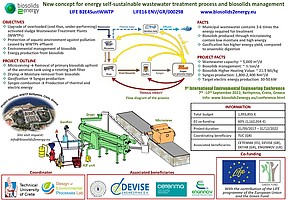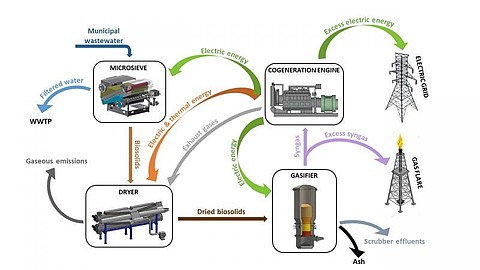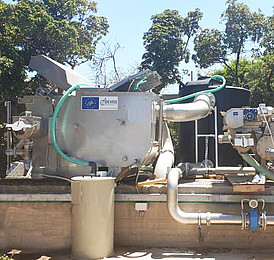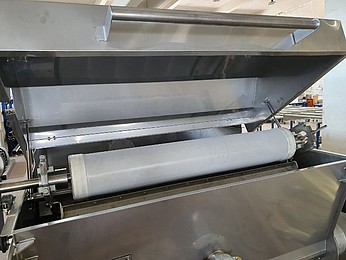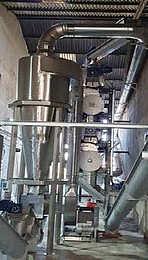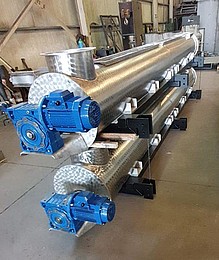«New concept for energy self-sustainable wastewater treatment process and biosolids management», LIFEB2E4Sustainable-WWTP (LIFE16 ENV/GR/000298), Funded by: Ε.U. & Green Fund, 2017 – 2023, Co-ordinator and Scientific manager: P. Gikas
LIFE B2E4sustainable-WWTP (www.biosolids2energy.eu) is a demonstration project that aims to improve the performance of overloaded (and thus, under-performing) extended aeration Wastewater Treatment Plants (WWTPs) and protect aquatic environment against pollution caused by WWTPs effluent, at significantly reduced energy requirements by means of a novel process for upfront solids removal (prior to aeration tank). Additionally, the project will demonstrate the valorization of the produced biosolids for electric energy production, through gasification, thus reducing further the net energy consumption of the WWTP, and consequently reducing the emission of greenhouse gases. The produced electric energy will be sufficient for energy self-sustainable operation for wastewater treatment.
The specific objectives of are:
- To improve the quality of the aquatic environment, as a result of improved performance of existing overloaded extended aeration WWTPs.
- To achieve total energy self-sufficiency on the demonstrative plant.
- To improve the performance of exiting extended aeration WWTPs due to upfront (upstream of aeration tank) removal of a large faction of TSS and BOD.
- To significantly reduce the energy requirements of existing extended aeration WWTPs.
- To reduce the environmental impact of sewage sludge management by applying an innovative treatment system of sludge that transforms sludge into energy and minimal solid inert waste.
- To reduce the carbon footprint and Greenhouse Gases (GHG) emissions due to the significant reduction of the process energy requirements together with the green energy recovery from biosolids through gasification.
- To remove up to 60% of Total Suspended Solids (TSS) at very early stage prior to aeration tank treatment.
- To produce electric energy by means of gasification of 100% organic carbon of biosolids, with the parallel production of low volume sterile solid waste.
- To demonstrate the feasibility of avoiding the sewage sludge disposal in small and medium sized WWTP’s.
- To integrate the life cycle and environmental risks assessment and contribute to new standards for wastewater treatment.
- To produce new, environmentally friendly, standards in municipal wastewater concept.
- To promote the new process in European municipalities, water industries and the whole chain of stakeholders.
- To determinate the potential transferability of the technology to other European regions and use with urban water, and the future application for industrial wastewater.


